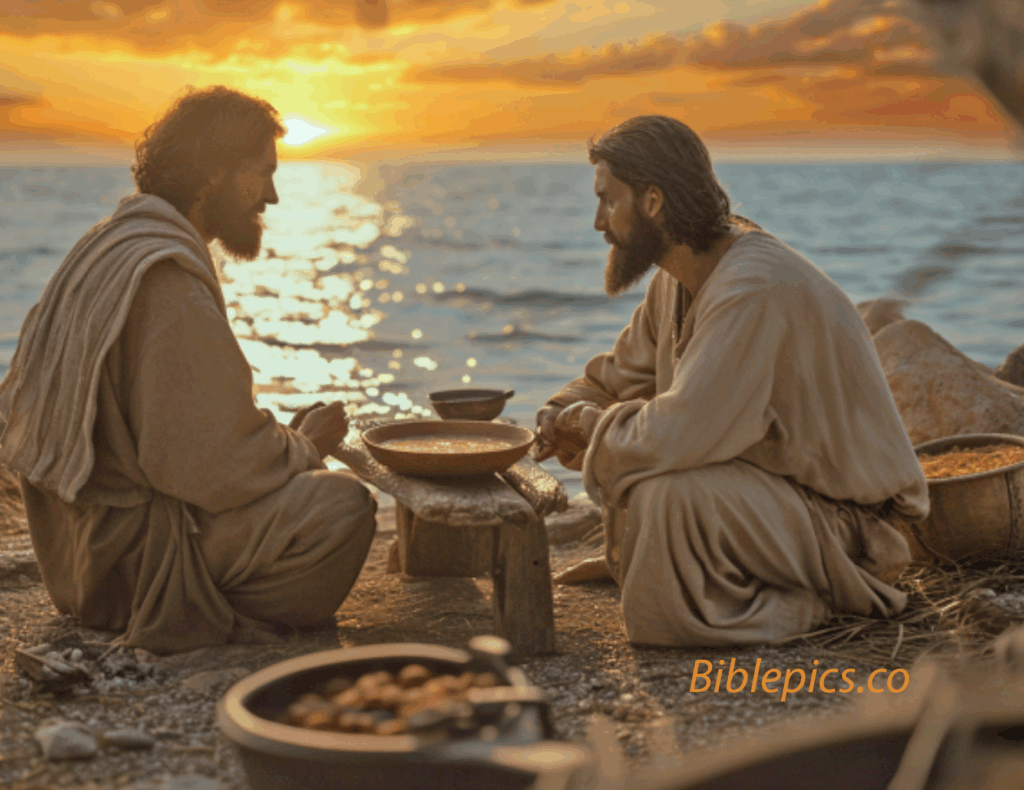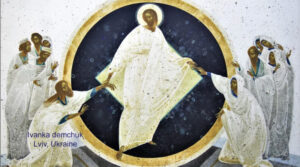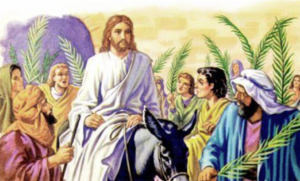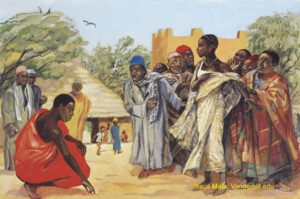We feed each other by honoring the truth of the divine image in each other.
Rowan Williams, Being Disciples: Essentials of the Christial Life
“Jesus revealed himself again to his disciples in this way.
Together were Simon Peter, Thomas called Didymus,
Nathanael from Cana in Galilee,
Zebedee’s sons, and two others of his disciples.
Simon Peter said to them, ‘I am going fishing.’
They said to him, ‘We also will come with you.’
So they went out and got into the boat,
but that night they caught nothing.
When it was already dawn, Jesus was standing on the shore;
but the disciples did not realize that it was Jesus.
Jesus said to them, ‘Cast the net over the right side of the boat
and you will find something.’
So they cast it, and were not able to pull it in
because of the number of fish.
“When Simon Peter heard that it was the Lord,
he jumped into the sea.
The other disciples came in the boat.
When they climbed out on shore,
they saw a charcoal fire with fish on it and bread.
Jesus said to them, ‘Bring some of the fish you just caught.
. . . Come, have breakfast.’
And none of the disciples dared to ask him, ‘Who are you?’
because they realized it was the Lord.
Jesus came over and took the bread and gave it to them,
and in like manner the fish.
This was now the third time Jesus was revealed to his disciples
after being raised from the dead.” John 21:1-14
Perhaps the central lesson to be learned from these post-Resurrection appearances of Jesus to the disciples is forgiveness – Jesus’ forgiveness of his disciples who abandoned him and our forgiveness of ourselves and each other, a forgiveness modeled upon the forgiveness shown by Jesus as He hung upon the cross, deserted by most of his disciples, having been placed among them by the Father solely to help them.
Think of the depth and genuineness of Jesus’ love and belief in the potential of his disciples when, after they left him to go it alone in his trial, crucifixion and death. Surely his life was not as much about his preservation of himself and his mission as it was about us and our potential.
And it worked: they did accept his forgiveness and went on to build his people – all of humankind – into God’s Church which was what Jesus came to accomplish. His mission was to open us to take on the building of humankind into the people of God.
Is not Jesus’ never-failing love and forgiveness of his beloved disciples in the Post-Resurrection account similar to the never-failing love of the prophet Hosia for his harlot wife? And more importantly for us, are not both of these, Jesus and Hosia, models for us who are experiencing betrayal, abandonment and unfaithfulness by persons we love dearly?
JESUS DID NOT GIVE UP THOSE WHO GAVE UP ON HIM
Read carefully this passage from Anglican Archbishop Rowan Williams on forgiveness.
- How do you and I see God’s forgiveness of us and his belief in our potential in the face of our neglect of him?
- And do we forgive others whom we see as failing us – be they our spouses, parents, children, siblings, relatives, friends, acquaintances or strangers?
Archbishop Williams writes:
“It is a gross distortion of forgiveness that sees granting forgiveness as a sort of claim to power over another—being a patron or a benefactor towards someone less secure. We should rather think of those extraordinary words in the prophecy of Hosea (11:8–9) about the mercy of God: ‘How can I give you up, Ephraim? . . . for I am God and not a man.’ To forgive is to share in the helplessness of God, who cannot turn from God’s own nature: not to forgive would be for God a wound in the divine life itself. Not power, but the powerlessness of the God whose nature is love is what is shown in the act of forgiving. The disciple rooted in Christ shares that powerlessness, and the deeper the roots go the less possible it is not to forgive.”2
- Stop for a while and think about how “helplessly” you forgive give those who abandon you, who wrong you. is what stirs in you a “helplessness not to forgive them? Do you respond like the Jesus you claim to follow, who lovingly prepares a meal for those who abandoned him?
Rowan Williams is saying that God is helpless where man is concerned because he cannot but forgive him for ignoring God, for not putting much effort into becoming the person God created him to be. Do we love those we think “wronged” us enough to be helpless because deep inside we simply cannot but forgive them?
Thus, the post-Resurrection Jesus appeared to the disciples; he kept on eating with them – as he appears and eats with us today. As his rootedness in our hearts deepens, we, too, will find it “less possible not to forgive.”
BY FORGIVING WE GIVE EACH OTHER OUR DAILY BREAD; WE NURTURE EACH OTHER’S DIGNITY
“Forgiveness is the exchange of the bread of life and the bread of truth; it is the way in which those who have damaged each other’s humanity and denied its dignity are brought back into a relation where each feeds the other and nurtures their dignity.”3
Sister Loretta
- Williams, Rowan. Being Disciples: Essentials of the Christian Life (pp. 41-42). Wm. B. Eerdmans Publishing Co.. Kindle Edition.
- Ibid.
- Ibid.





